Economic
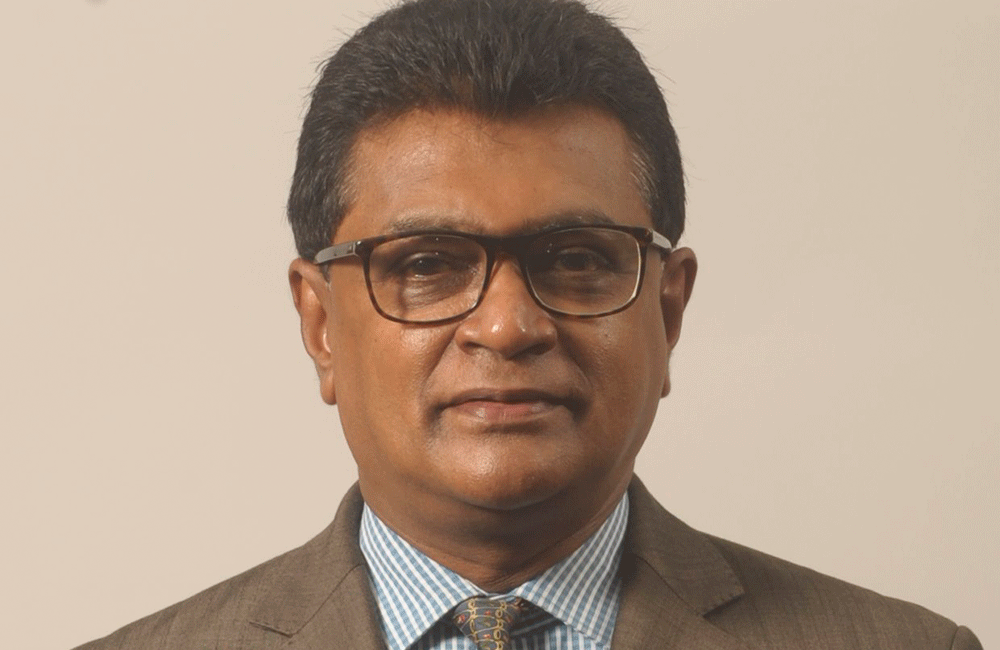
Ranel Wijesinha appointed as SEC Chairman
Ranel Tissa Wijesinha was appointed as the Chairman of the Securities and Exchange Commission of Sri Lanka (SEC) with effect from today (24), by the Minister of Finance, the Ministry of Finance said.
Wijesinha serves as an Independent International Consultant to the Asian Development Bank and has over 31 years of national and international professional work experience in accounting, auditing and consulting. He also served as Director, Business Development of the John Keells Holdings Group and as Manager of Deloitte, Bahamas. He was a Partner and Head of Consulting and Financial Advisory Services of PricewaterhouseCoopers, Sri Lanka as well as serving as an Independent International Management Consultant to multilateral and bi-lateral development banks and institutions providing advisory services to overseas Governments.
The following persons were appointed to the Board of Directors of the SEC.
Chandrakumar Ramachandra
Jayantha Fernando
Arjuna Herath
Rajeev Amarasuriya and
Manjula Hiranya de Silva4
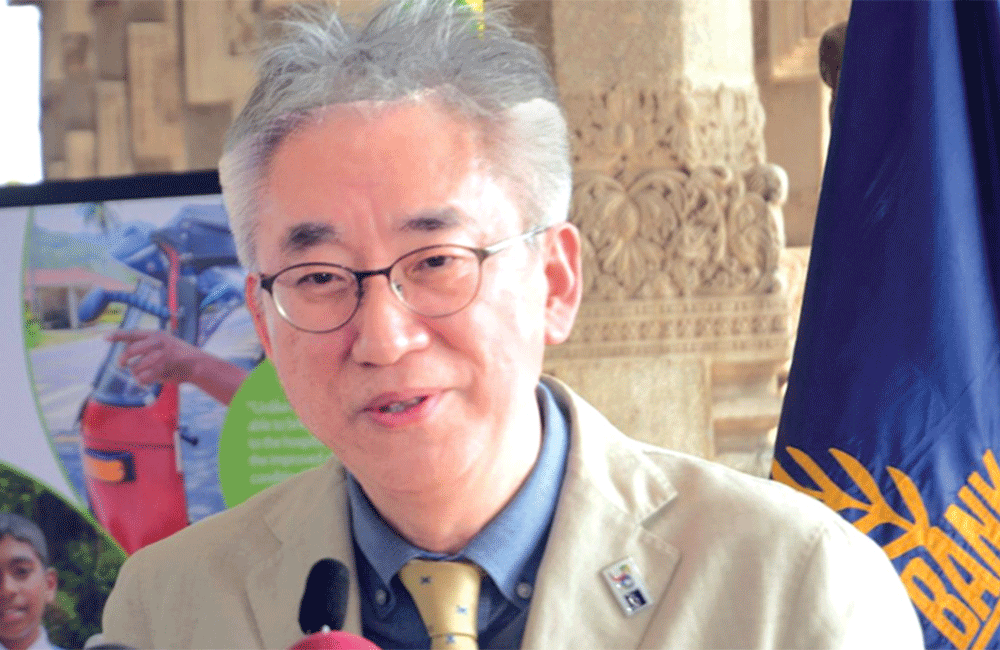
ADB set to increase lending to Sri Lanka
The Asian Development Bank (ADB) lending for Sri Lanka is set for a significant increase up to USD 600-800 million this year according to ADB’s Director General for South Asia Hun Kim.
The average annual ADB lending for Sri Lanka in the last three years has been USD 300 million.
Speaking to South Asian Journalists at the 51st ADB Board of Governors' Annual Meeting 2018 at the ADB Headquarters in Mandaluyong City in Manila yesterday, Hun Kim said Sri Lanka is one of the countries benefiting from the capital increase of the ADB.
"The ADB's lending for Sri Lanka this year will be USD 600-800 million, which is very big for the size of 20 million population of the country. Sri Lanka is one country we think should really grow. Three years ago, we were all talking about Sri Lanka emerging as 'new star of South Asia' because it has all the necessary ingredients. It is not happening because there are not enough foreign investments and the exports are going down," the Director General said while stressing that the Sri Lankan Government must have a longer term vision to be in the new engine of growth and to develop its economic growth.
"But that would not be possible in traditional ways. That is why the ADB is working on an Economic Corridor, Special Economic Zones and port-based development. With them, the country can find some new engine of growth. Long term investments must be focused on, but that can only come when Government has a vision for the future more than five years. When everybody is focusing on elections it would be difficult," he added.
He also observed political instability, especially after the recent Local Government Election results, have contributed to economic setbacks in the country. "Sri Lanka is supposed to do a lot better and it is a country with capacity. The next couple of years may be difficult for Sri Lanka. Sri Lanka is a far organized country and it has very strong bureaucracy and civil society. If politics is stable all these countries in South Asia can perform.
They have committed people. However, South Asian politics is always a problem. With good politics it will really make a change," he commented. He pointed out that Sri Lanka, being a country with high living standards and education levels, needs to focus on longer term plan to maintain those standards.
"Sri Lanka is a country where people live very well. Sri Lanka needs to continue to move up. Without a long term plan, it will struggle in the years to come to maintain the high quality of living standards," he said.
Excerpts from : Colombo Page
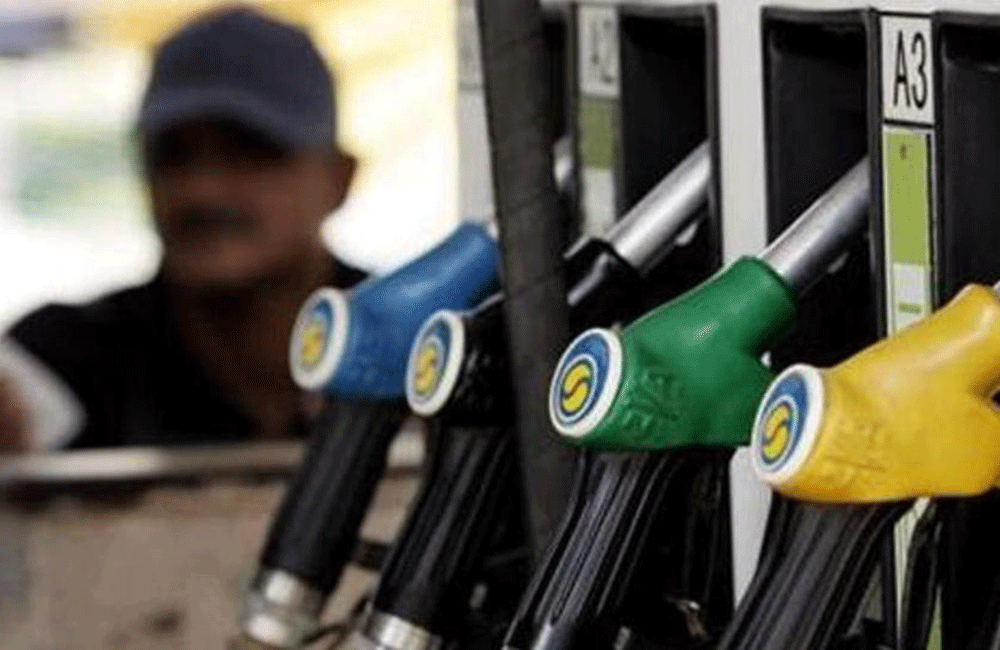
50% Tax on Fuel in India, Highest Among South Asian Countries
India’s soaring fuel prices despite relatively stable crude rates is a direct result of more than 50 percent tax levied on petrol and diesel. After the Centre introduced daily revision of fuel rates from June 16 last year to absorb sudden shocks, retail rates have gone up by Rs 11.09 per litre as on May 21 in New Delhi in less than a year.
As on May 21, while the refineries produced petrol at Rs 37.19 a litre, state and central government together made Rs 35.76 for every litre of petrol sold.
According to the price buildup mechanism used by Indian Oil Corp. Ltd, the price of petrol charged to dealers as on May 21 was Rs 37.19 a litre. The rate finally swells to double its value when 25.44 percent excise duty, 4.72 percent dealer commission and 21.26 percent VAT gets added. The final retail price of Rs 76.57 a litre is a sum of 51.44 percent tax addition.
Petrol price in New Delhi is used for all calculations. However, rates in Mumbai and most other state capitals are predominantly higher as these taxes do not fall under Goods and Services Tax (GST) and are subject to revision by state governments. Retail price of petrol in Mumbai on May 21 reached an all-time high of Rs 84.40 per litre.
The same tax rate when compared to other developed economies and South-Asian countries emerges as one of the highest. The US levies a tax of 17 percent in its fuel while India’s immediate neighbour Pakistan taxes petrol at 23.5 percent.
India’s high tax rate also comes in sharp contrast to Bangladesh, Sri Lanka and European countries. Sharing Eastern borders with India, Bangladesh levies 25 percent corporate tax along with 15 percent on fuel while the average tax rate on petrol in the European nations approximates to 21 percent.
Retail prices of petrol, when compared to its neighbours, topped the charts. Save China, which has an average petrol rate of Rs 80.83, India has the highest petrol price in all of South East Asia. Pakistan charges Rs 51.64 a litre for petrol with Bangladesh selling a litre of petrol at Rs 71.54 and and Sri Lanka at Rs 63.91.
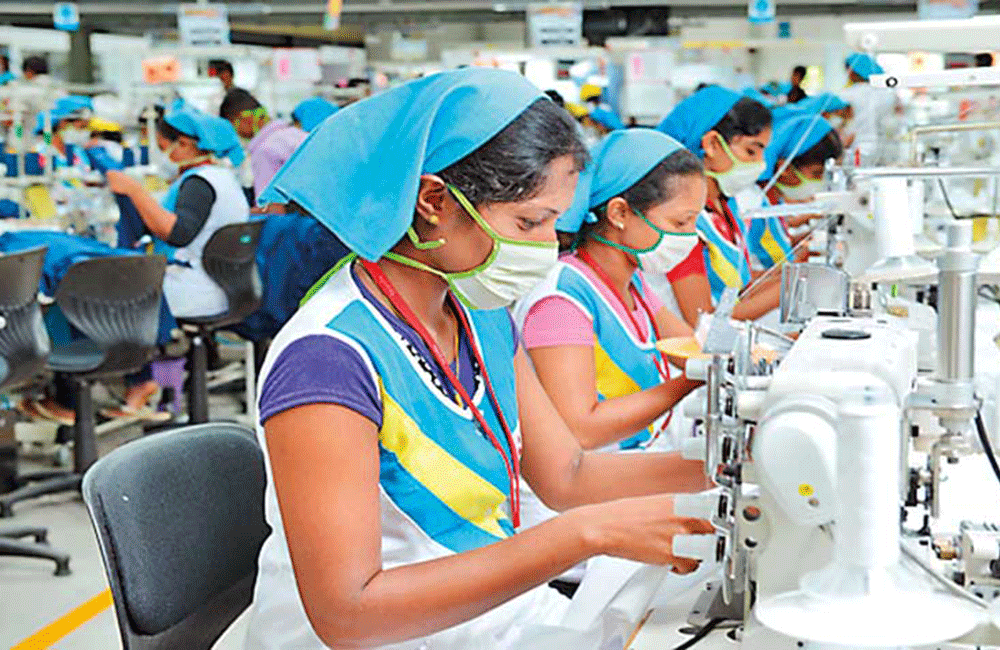
Sri Lanka records a 3.1% growth in workforce: CBSL
Sri Lanka's workforce has grown by 3.1 percent in 2017 in comparison to the previous year (2016), the Central Bank said. The workforce in 2016 which was 8.3 million has grown to more than 8.5 million in 2017.
The working age for Sri Lanka is defined as age 15 years and above and the workforce is defined as the economically active population who are in working age.
Accordingly, the country's employment/participation rate has grown by 3.3 percent while the unemployment rate has decreased.
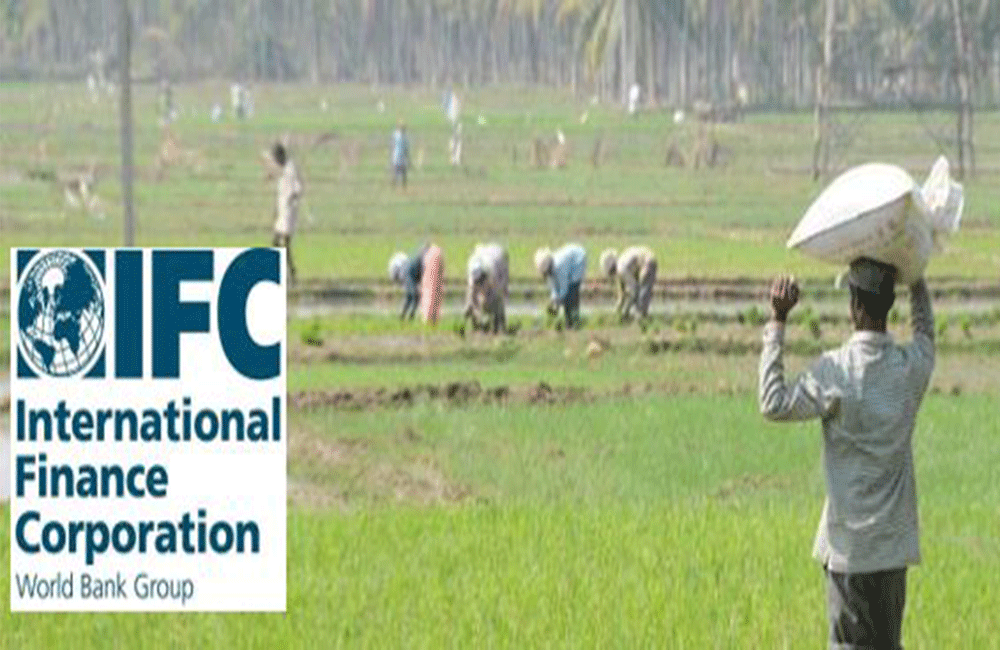
IFC to extend USD 50 million to NDB for agri-finance projects
The International Finance Corporation (IFC), a member of the World Bank Group, is looking to provide a loan of up to $50 million (LKR 7.9 billion) to Sri Lanka’s National Development Bank (NDB) to support financial access to agriculture-related micro, small and medium enterprises, according to IFC filing.
The loan will be in Sri Lanka rupees to facilitate local currency financing.
“The proposed project will involve advisory support to PFIs (participating financial institutions) to develop capacity to lend to agri-finance projects, a segment currently under-served by the banks and largely neglected. It will also demonstrate to other Sri Lankan financial institutions that commercial lending to agriculture related MSMEs is both a profitable and sustainable business proposition,” as per the disclosure.
NDB expects to provide access to finance to agriculture-related MSMEs in Sri Lanka over the next five years. Other contributions will include climate resilience via climate smart agriculture, sustainable agri-finance to help address food security, job creation, and overall economic growth.
IFC had earlier extended USD 75 million in the form of long-tenor financing to NDB. In the previous year, IFC extended a USD 24 million loan to NDB to support the bank’s growth plans and long term funding for small businesses.
In Sri Lanka, nearly 91 per cent corporate entities operate in the SME segment, which is seen as one of key growth drivers for the country’s economy. The remittance space occupies a major part of the commercial banking business, contributing about 8.5 per cent of the country’s GDP.
The country has been receiving support from the World Bank to support SMEs. Back in 2011, National Development Bank was among the eight financial institutions to participate in the World Bank’s USD 57.4 million project in supporting the government’s efforts to improve SMEs affected by the global financial crisis.
Banks like Commercial Bank of Ceylon have also received support of USD 65 million from IFC to help improve the operation in the SME sector through the securitization of remittances. “There is a clear role for IFC in providing a large amount of longer-tenor, fixed interest rate local currency funding, not readily available from the market,” as stated by IFC on the latest loan support to NDB. On of the difficulties SMEs face in accessing credit in Sri Lanka is the shortcomings within the SMEs as well as shortcomings in the financial system. The country face a lack of understanding of genuine SME oriented banking practices, as mentioned in an ADB report. However, the Credit Information Bureau of Sri Lanka has already introduced a state-of-the-art ‘Secured Transaction Registry’ to help banks evaluate the repayment capacity of entrepreneurs.
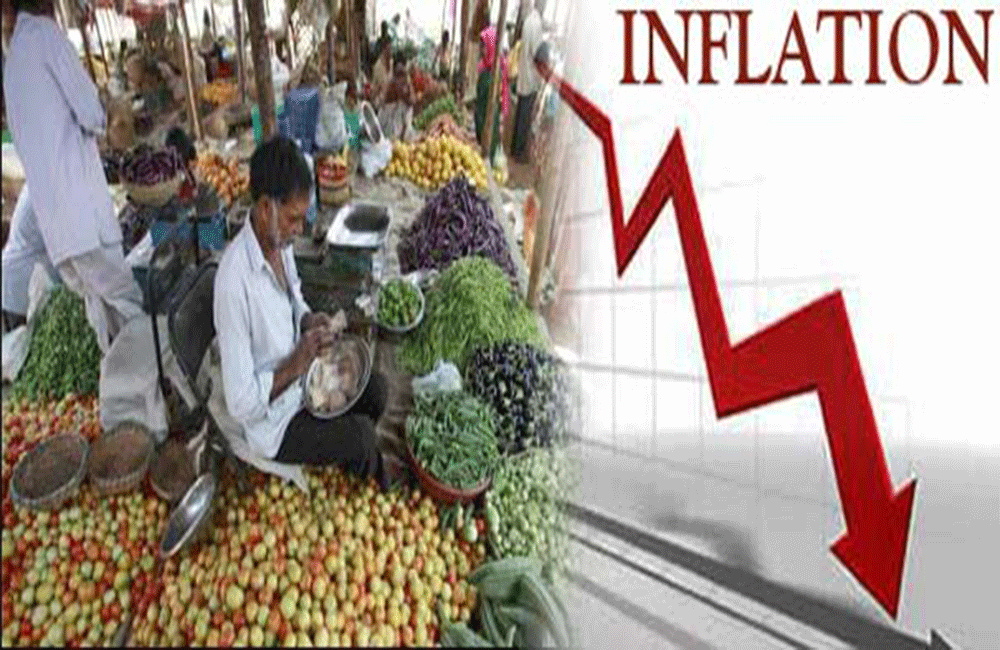
Sri Lanka's inflation drops to a two year low of 2.8%
The year-on-year National Consumer Price Index (NCPI) headline inflation has declined to 2.8% in March, lowest since April 2016, from 3.2% in February 2018, the Central Bank said yesterday. The year-on-year National Consumer Price Index (NCPI) headline inflation has declined to 2.8% in March, lowest since April 2016, from 3.2% in February 2018, the Central Bank said yesterday.
It said the headline Inflation, as measured by the change in the NCPI, which is compiled by the Department of Census and Statistics (DCS), continued to follow the declining trend exhibited since November 2017.
The NCPI Core inflation, which reflects the underlying inflation in the economy, continued its declining trend observed since September 2017 and decreased to 1.9% in March from 2.0% in February, on year-on-year basis. Annual average NCPI Core inflation declined to 3.6% in March from 4.1% in February.
The monthly decline in food prices in March was supported by the favourable supply conditions attributed to this sharp decline in year-on-year inflation in March. The change in the NCPI measured on an annual average basis decreased from 7.2% in February to 6.7% in March.
When monthly change is considered, the NCPI declined from 123.7 index points in February to 122.8 index points in March, mainly due to the decline in prices of the items in the food category, particularly that of vegetables, big onions, rice and red onions.
The Central Bank also said marginal price increases were observed in alcoholic beverages and tobacco, transport, and miscellaneous goods and services sub-categories.
(Daily FT)

Petrol, diesel prices continue to rise in India amidst surging global oil prices
Global crude oil prices are rising, and so do the petrol and diesel prices in India. After a relief of 19 days, fuel prices have again started moving up in line with international crude oil prices, as oil marketing companies have decided to pass on the burden to consumers after a freeze of 19 days, which started from April 24. According to the website of Indian Oil Corporation, petrol price in Delhi is at INR 75.10 (LKR 175) per litre on Wednesday and INR 82.94 (LKR 193) per litre in Mumbai. Diesel prices in Delhi have accordingly moved upwards at INR 66.57 (LKR 155) per litre and INR 70.88 per litre in Mumbai.
Similarly, petrol prices are at INR 77.79 (LKR 181) per litre in Kolkata and INR 77.93 (LKR 182) per litre in Chennai. Diesel prices are at 69.11 (LKR 169) in Kolkata and INR 70.25 (LKR 164) in Chennai.
Meanwhile, the increased demand and restricted supply have caused global oil prices to soar with Brent crude oil reaching USD 79 (INR 5364) per barrel which is the highest since November 2014.
After the plans for the US to pull out of the Iran nuclear deal became known, oil prices surged over the uncertainty of what would happen to Iran's oil industry if the US reimposed sanctions, limiting Iran's production.
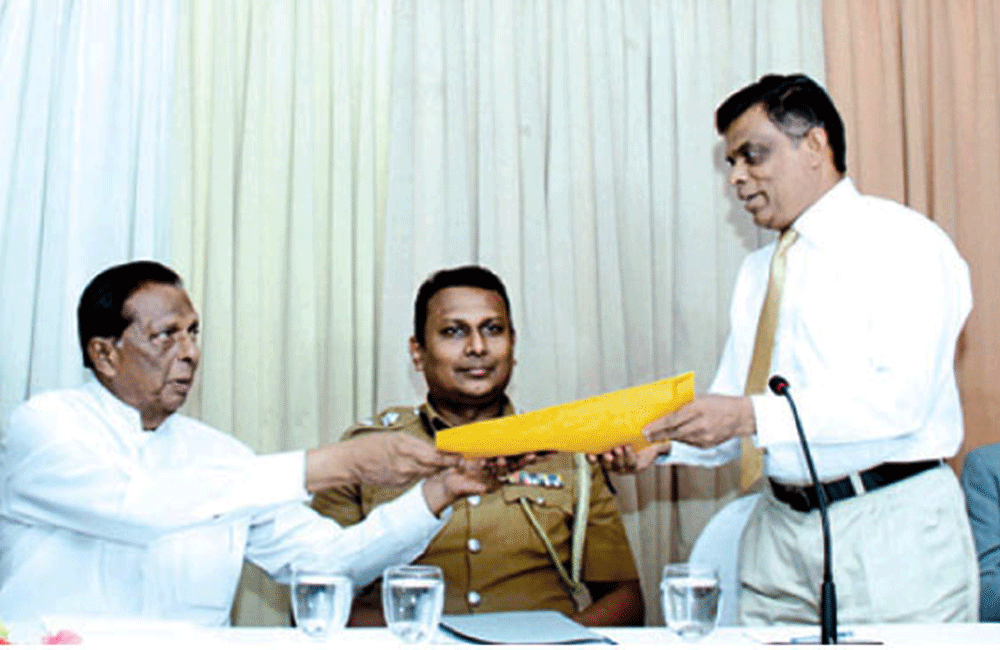
Sri Lanka Tourism targets US$ 4.5 bn revenue for 2018
Sri Lanka Tourism will target a revenue of US$ 4.4 billion, said Ministry of Tourism Development and Christian Religious Affairs, John Amaratunge. Sri Lanka ended 2017 with US$ 3.9 billion revenue.
He said that the industry for this year has already shown a growth of 24% and will move from the current third position to be the top foreign exchange earner for Sri Lanka soon. The Minister also said that they have taken quick steps against harassment and physical assault of tourists in Mirissa recently by locals in the area.
The incident which caused outrage in the tourism industry was made known only through the media as neither the victims nor the establishment concerned or any other person had reported the matter to the police or any other authority. Investigations began only after directions were issued by the Minister of Tourism Development to the Tourist Police to investigate the matter following media reports. “Ever since the incident in Mirissa was first reported on Monday April 9, I have been closely following the progress of the investigations. (SS)
Four suspects were arrested by the Weligama Police on April 13 and two others on the April 15 following the recording of statements from several witnesses.
Minister said that the affected tourists would be once again called for the inquiry and all their travel and other expenses would be sponsored by Sri Lanka Tourism Development Authority.
SLTDA has also launched a separate investigation in to the operation of the establishment.
Minister also requested the Tourism Police to increase’ beats’ in tourism areas which in turn will help to irradiate such incidents.
Source : Daily News
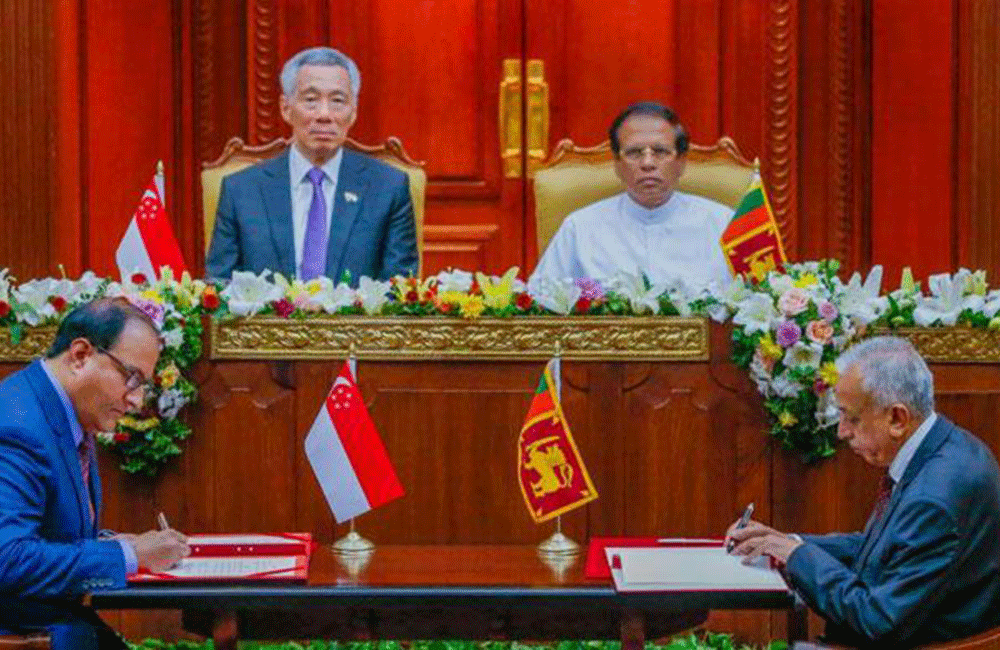
FTA with S’pore legal Ministry says
Refuting allegations levelled on the Free Trade Agreement (FTA) with Singapore for not following proper procedures among others, a highly placed International Trade Ministry official said the FTA was approved by the Cabinet and was cleared by the Attorney General’s Department.
According to legal sources, Cabinet approval was sufficient prior to signing the FTA. However, the advice required that Sri Lanka should have completed domestic legal requirements which included the passing of the Anti-dumping and Countervailing Act. Passing this Bill ensured that certain fortifications were laid before going into the FTA, and this has been a reason for the delay in signing the FTA, the official explained.
Meanwhile, the Ministry has also assured that through the latest FTA, individuals from India, Malaysia or any other country will not be able to gain employment in Sri Lanka.
According to the Ministry, only citizens of Singapore will be able to be a service provider in Sri Lanka, barring those from other countries. Even a Singapore national will only be able to do so for five years the Ministry clarified.
Some excerpts from : Sunday Observer

Lanka’s economic growth to recover in 2018 - ADB
Sri Lanka’s economic growth is projected to recover in 2018 with the agriculture, apparel and construction sectors expected to expand together, with the implementation of a reform-oriented budget, a new Asian Development Bank (ADB) report said.
The ADO forecasts GDP to grow moderately at 4.2% in 2018 and pick up pace to grow at 4.8% in 2019.
“Beyond the short term drivers, to sustain long term growth, there is an urgent need to implement much needed reforms, as well recognized in Vision 2025 and Budget 2018” said Utsav Kumar, ADB’s Country Economist for Sri Lanka.
“The proposed reforms will provide the underpinnings for attracting private investments and generating export led growth. It is necessary to ensure continuity of the reform agenda and insulate it from the political cycle. Our growth projections assume normal weather, but any inclement weather will affect growth, and may result in higher inflation”
Inflation is expected to decrease from 7.7% in 2017 to 5.2% in 2018 and further to 5% in 2019. Introduction of automatic pricing formulas for oil and electricity in 2018, and greater currency depreciation as foreign reserves are built up to meet debt service requirements are likely to exert inflationary pressures.
Gains in revenue collection are expected to continue with the new Inland Revenue Act coming into effect in April 2018. Budget 2018 targets the deficit to fall to 4.8% as a result of higher tax revenue following reforms.
As exports improve, partly due to the restoration of GSP+, the current account deficit is projected to be 2.7% in 2018 and improving to a projected deficit of 2.5% in 2019.
The ADO states that given the efficiency, fiscal, and distributional implications of an underperforming State-owned Enterprise (SOE) sector in Sri Lanka, continued SOE reform is essential beyond the IMF program. The report notes that for meaningful and sustained SOE reforms, there is a need to build a political consensus and ring-fence the reform process from changes in political order. Sri Lanka can learn from its own experience in SOE reforms from the past.
Meanwhile the report also indicates that the growth picked up across most of the economies in developing Asia, supported by continued high demand for exports and rapidly expanding domestic demand.
ADB forecasts gross domestic product (GDP) growth in Asia and the Pacific to reach 6 % in 2018 and 5.9% in 2019, a slight deceleration from the 6.1% registered in 2017. Excluding the high-income newly industrialized economies, growth is expected to reach 6.5% in 2018 and 6.4% in 2019, from 6.6% in 2017. ADO is ADB’s flagship annual economic publication.
Source : Daily News

Sri Lanka holds benchmark rates as consumer prices ease
Sri Lanka’s central bank kept monetary policy on hold after a deceleration in inflation allowed room for a pause.Sri Lanka’s central bank kept monetary policy on hold after a deceleration in inflation allowed room for a pause.
Governor Indrajit Coomaraswamy held the standing lending facility rate at 8.50 percent and the standing deposit facility rate at 7.25 percent, the Central Bank of Sri Lanka said in a statement in Colombo on Friday. The move to hold the deposit rate was predicted by six out of seven economists surveyed by Bloomberg, while one forecast a 25 basis point increase. All seven expected the central bank to hold the lending rate.
Favorable domestic supply conditions helped headline inflation decelerate to low single digit levels, the central bank said in a statement.
Inflation is projected to remain within the 4-6 percent target range over the medium term and a moderate economic recovery is seen due to improved global and domestic conditions, it said.
Sri Lanka’s economy is expected to expand 4 percent and inflation is seen below 5 percent in 2018, even as the island nation remains vulnerable to adverse shocks due to sizable public debt, large refinancing needs, and low external buffers, the International Monetary Fund said last month.
Coomaraswamy, who described the central bank’s policy outlook as neutral on April 20, cut lending rate by 25 basis points in the previous policy, the first easing in three years, to boost an economy that expanded at the slowest pace since 2001.
(Bloomberg)

Sri Lankan stocks fall to 1-week low as political woes weigh
Sri Lankan shares fell on Wednesday to their lowest in one week as political uncertainty hurt sentiment ahead of a no-confidence vote against Prime Minister Ranil Wickremesinghe, brokers said.
The vote could go down to the wire and lead to political instability in the island nation, even if the government manages to scrape a win.
Meanwhile, Sri Lanka’s central bank unexpectedly cut its key lending rate by 25 basis points on Wednesday, as policy makers sought to revitalise an economy growing at its weakest pace in 16 years and facing heightened political uncertainty.
The Colombo stock index ended 0.22 percent down at 6,444.41, its lowest close since March 28.
The index climbed 0.51 percent last week, its first weekly gain in five, but dropped 1.14 percent last month.
“Market is down due to weak buying interest from the local investors as they are waiting for direction after the no-confidence motion,” said Dimantha Mathew, head of research, First Capital Holdings.
“The biggest deterrent is the political uncertainty. The rate cut did not have an impact today.”
The turnover stood at 1.2 billion rupees ($7.7 million), same as this year’s daily average of around 1.2 billion rupees.
Foreign investors sold shares worth net 152.9 million rupees on Wednesday, extending the year-to-date net foreign outflow to 1.29 billion rupees worth equities.
Shares in Distillers Sri Lanka Plc fell 16.7 percent and Ceylon Cold Stores Plc ended 2.1 percent down. ($1 = 155.8500 Sri Lankan rupees)
Source : Reuters
Page 16 of 20